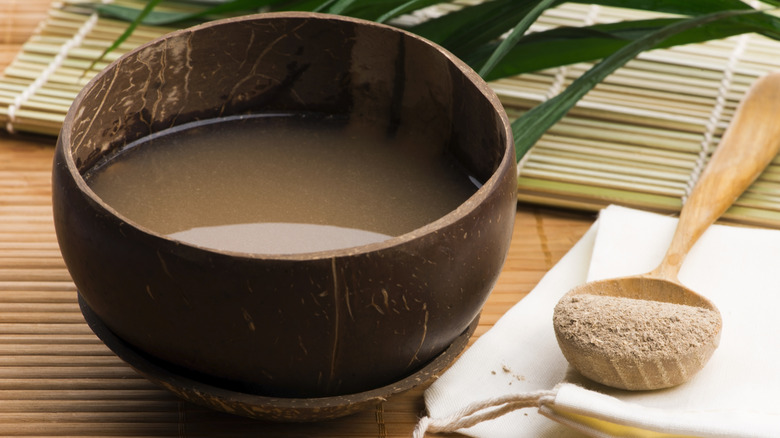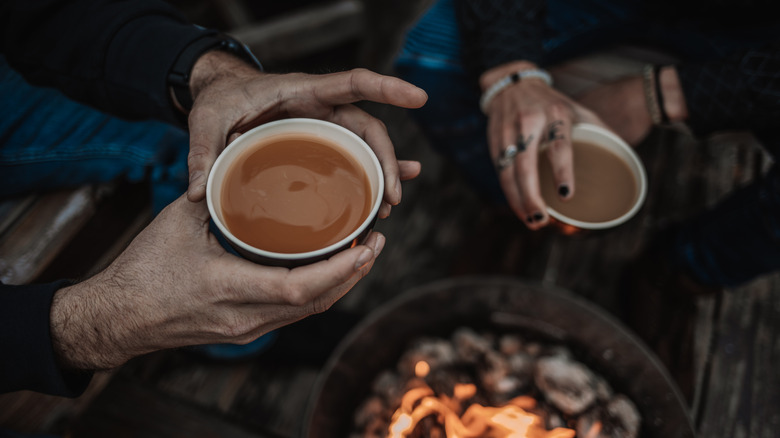What Happens To Your Body When You Drink Kava?
Plants of many varieties have long been used in holistic medicine and cultural ceremonies to promote healing, cultivate spirituality, and support overall well-being through their believed (and sometimes proven) medicinal properties. Though there are some familiar topical and injectable flora such as aloe, hemp, and lavender, others are just now coming into the mainstream, prompting intrigue and fascination. Enter kava, the sippable root remedy for anxiety.
Kava is a shrub native to the South Pacific Islands, related to the black pepper plant, whose roots are typically consumed as a beverage but can also be chewed, pressed into pills, packaged in capsules, or concentrated in tinctures. Kava, also called kava kava, is said to reduce anxiety, lower stress, ease symptoms of insomnia, and promote overall feelings of ease and euphoria. Kava is legal but unregulated across the U.S. and states like California, Texas, and Ohio have even opened kava bars for social sipping.
Similar to benzodiazepines such as Xanax, kava interacts with GABA receptors in the brain to produce a calming, mood-enhancing effect. Uniquely, kava's effects intensify with continued use, which is an uncommon trait of such substances. In a study published in the journal Psychopharmacology, Kava significantly reduced anxiety and depression with no serious side effects compared to a placebo, suggesting efficiency in anxiety treatment. Another study, published in the Journal of Ethnopharmacology, determined that kava can sharpen focus, but paradoxically, it also impairs temporal order judgment, a key element of executive function related to driving safety.
Safety precautions for drinking kava
Although some studies have demonstrated the anti-anxiety effects of kava consumption, research on the effects of kava on the human body is limited due to ethical concerns regarding its potentially toxic effect on the liver. Despite positive reports from consumers, there have been over 30 cases of kava-induced liver damage in Europe. However, it remains uncertain whether the damage was caused solely by kava or by the plant in combination with other substances. The exact dosage of kava that can cause liver toxicity or other unpleasant symptoms such as tremors and skin rashes is also unclear.
Kava should never be given to children or consumed by pregnant or breastfeeding people, or individuals with liver disease, hepatitis, or Parkinson's disease. The effects of kava consumption peak at around two hours, and you should never drive under its influence. Because it can interact with other drugs, pharmaceuticals, and supplements, you should consult with your medical care provider before introducing kava into your beverage routine.
Kava may be a solid short-term solution to stress and anxiety, and a viable alternative to booze-infused libations when non-alcoholic wines get a little boring. Being helpful to combat insomnia, it could also be an alternative to things like the sleepy girl mocktail to help you sleep more easily. However, it's important to consider all the facts and only consume the plant under the supervision and approval of your doctor.

